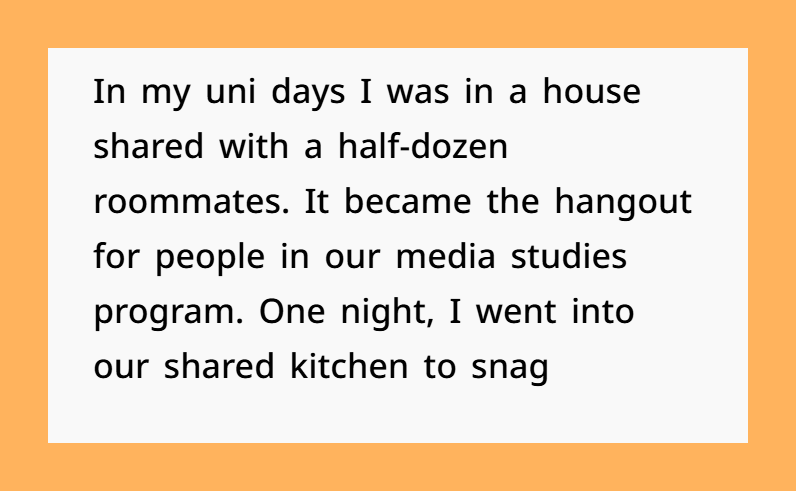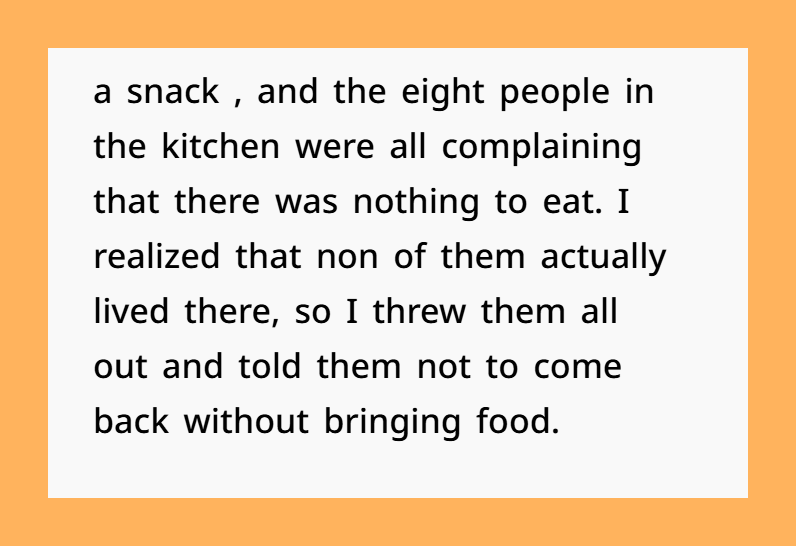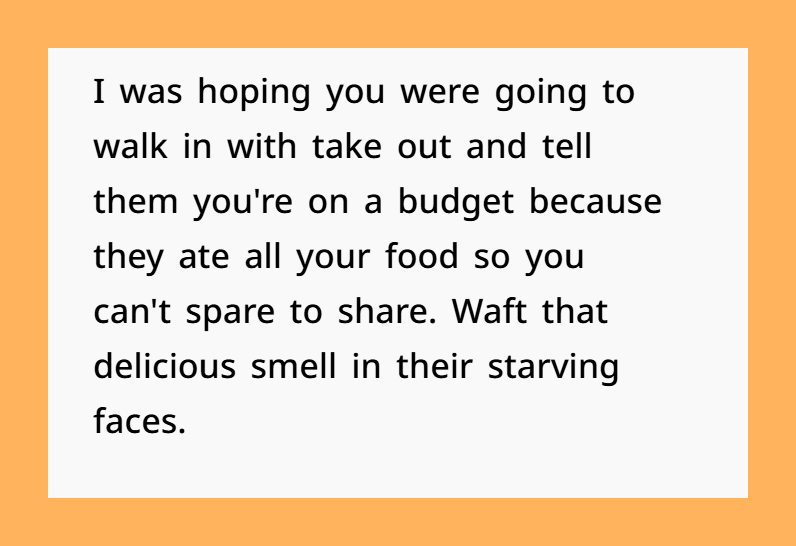Entitled Cousin Exploits Generous Food Budget Until Financial Reality Hits Hard
In a story of financial entitlement and passive-aggressive revenge, the protagonist recounts their early college days living in a relative’s shared apartment setup. Equipped with a generous food allowance, they stocked the communal kitchen with easy-to-prepare items like microwavable meals and costly staples such as Spam. Yet, instead of gratitude, their cousin and his freeloading friends would indulge irresponsibly, throwing barbecues and hosting guests—all funded by the protagonist’s groceries.
Tensions reached a boiling point when food scarcity became the norm at the month’s end, with the cousin warning the protagonist to “eat less” to avoid depleting supplies. Insults based on appearance further strained the relationship, culminating in a symbolic act of retribution: the protagonist stopped supplying food altogether. The freeloaders soon spiraled into financial hardship, forced to survive on expired vegetables and basic staples, until their pride crumbled. Eventually, they begged for a taste of luxury—the very Spam they once hoarded.
Ensuring peace in a shared kitchen isn’t as easy as it might seem

And these guys definitely know this, as sharing food quickly became a source of conflict for them
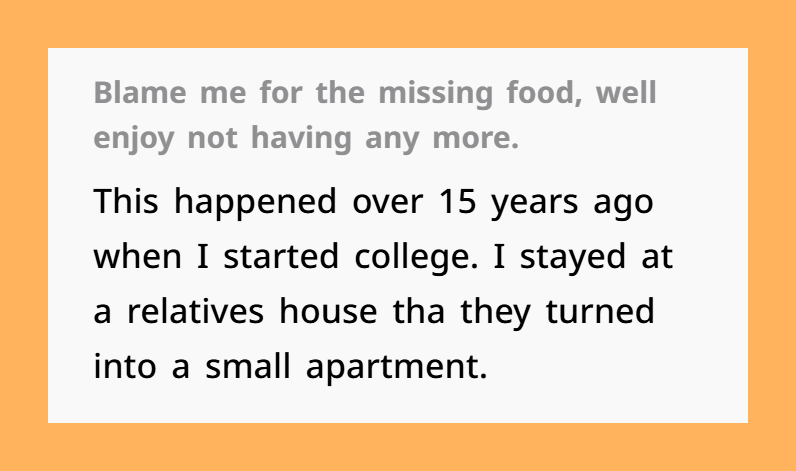
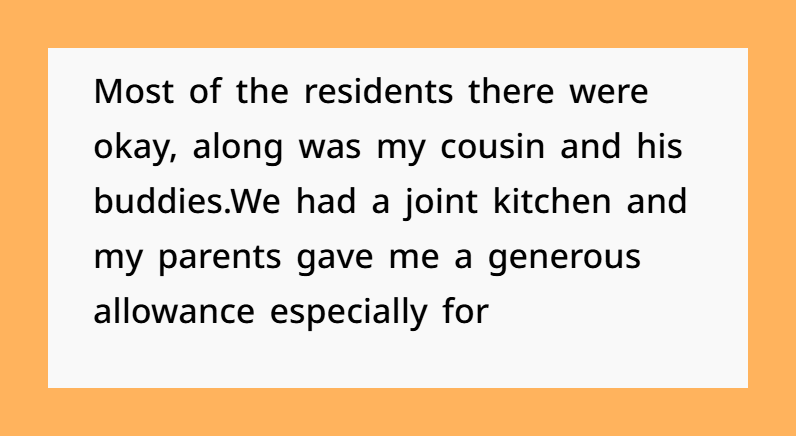
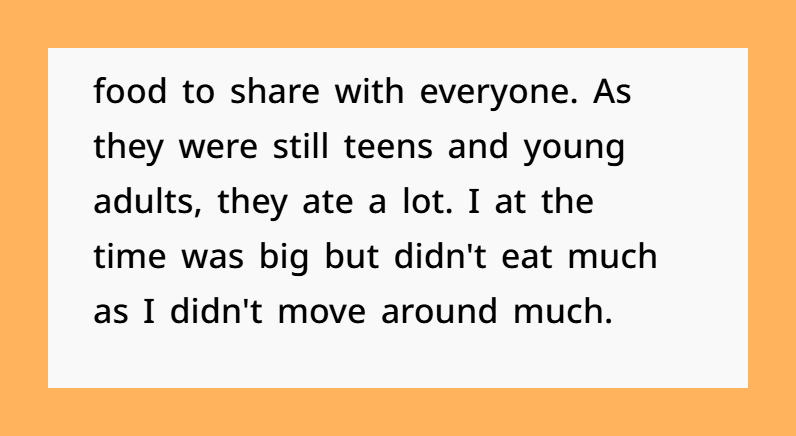
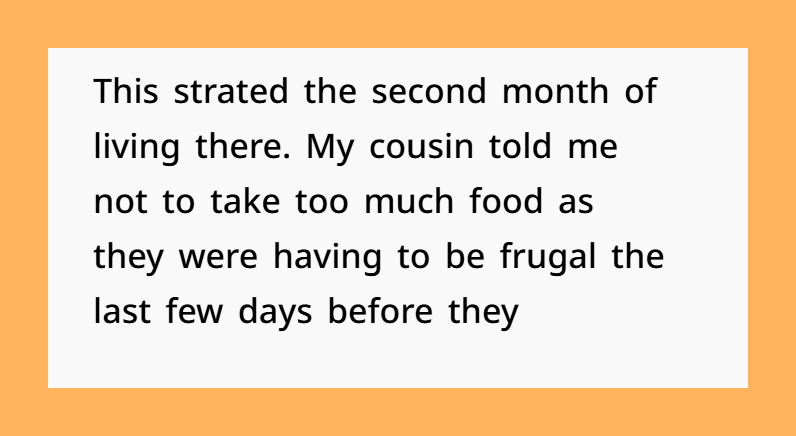

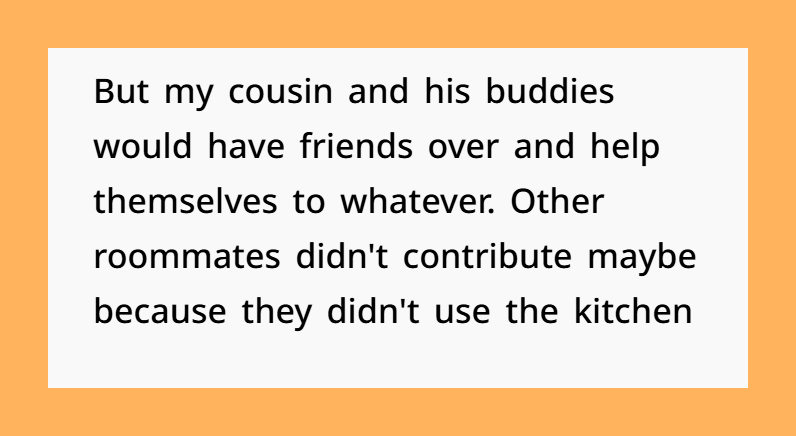

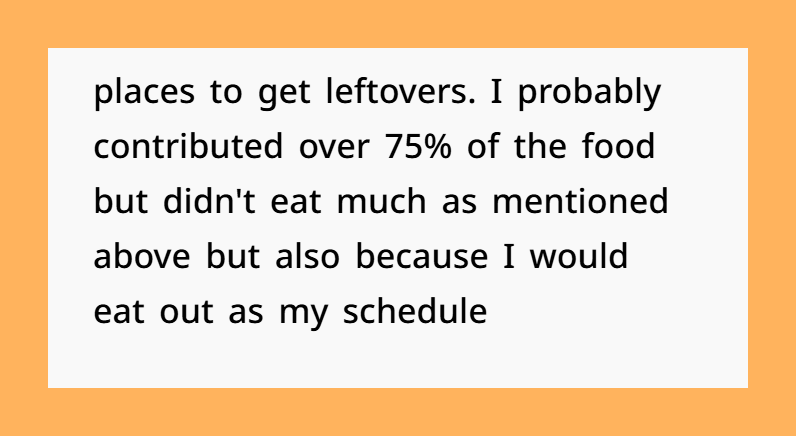

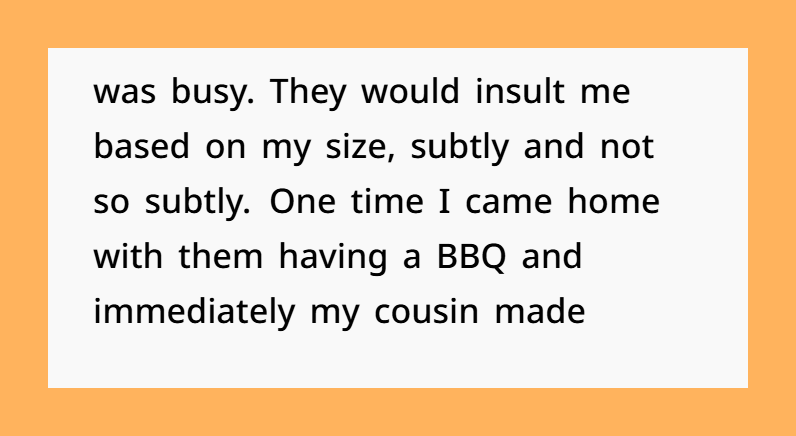
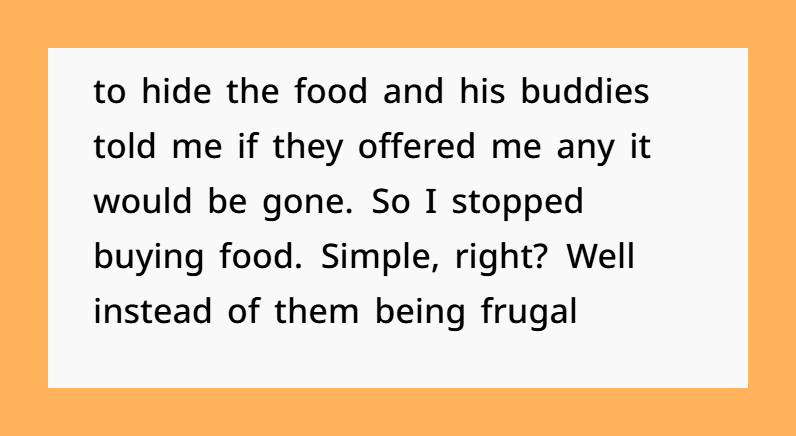
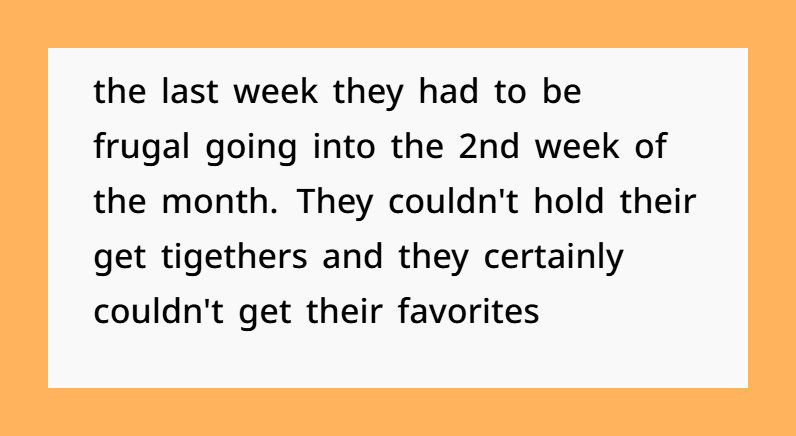
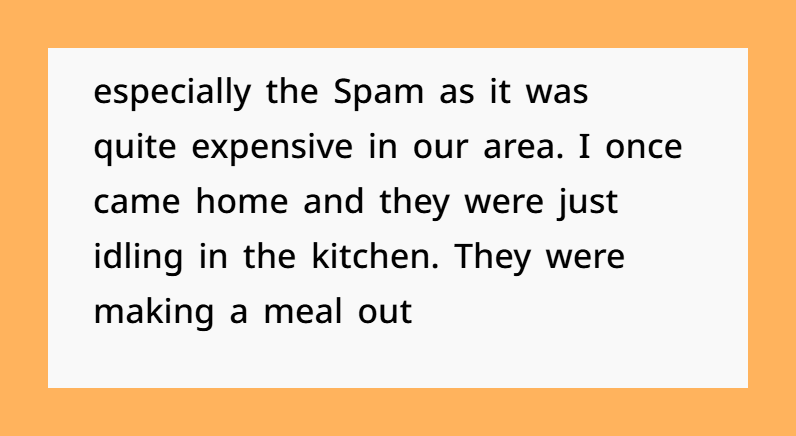

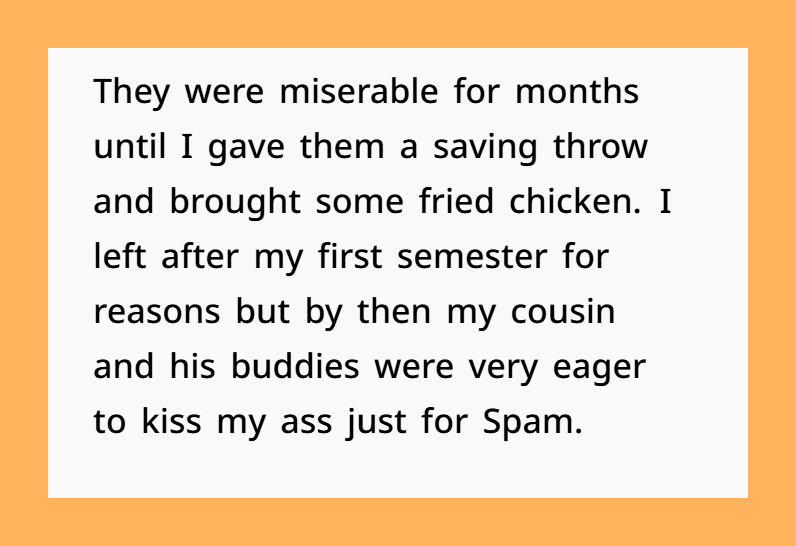
“You need great communication to get along well with your roommates”
This narrative highlights a common financial boundary issue that arises in shared living situations, especially among college students or young adults in rented accommodations. The “tragedy of the commons” principle plays out vividly here—where shared resources, like groceries, are exploited by those who contribute the least. Behavioral economics explains this phenomenon, indicating that when individuals don’t bear the direct cost of a resource, they tend to overconsume.
What the cousin and his friends did—relying on someone else’s grocery budget while offering insults instead of gratitude—isn’t just rude; it’s a textbook case of financial abuse. According to Verywell Mind, financial abuse in relationships (including familial ones) occurs when one party exploits another’s resources, often leveraging emotional manipulation. This situation is also eerily similar to roommate food theft cases, which remain one of the leading causes of shared housing disputes according to Forbes Home.
The specific mention of Spam’s high cost adds another layer, particularly considering how prices of canned meat products surged over the years due to supply chain issues and inflation. In areas like Hawaii and parts of Asia-Pacific, Spam is often viewed as a luxury food item due to its cultural significance and cost. A Bloomberg report in 2022 confirmed that rising meat prices made Spam nearly a premium commodity, affecting low-income households the most.
Additionally, the decision to pull financial support aligns with the “gray rocking” technique often advised in dealing with toxic relationships or narcissistic behavior—removing the emotional fuel or, in this case, the literal sustenance that feeds the abuser’s behavior. Once the food supply dried up, the cousin’s group faced the real economic consequences of freeloading—no parties, no Spam, and no financial cushion.
Keyword-rich financial and legal takeaway:
Situations like this underscore the importance of financial boundaries, personal budgeting, and legal roommate agreements when sharing spaces. Written agreements outlining food expenses, grocery sharing rules, and fair contributions can protect individuals from financial exploitation. In extreme cases, victims of such economic abuse may have legal recourse under tenant rights or even small claims court if theft or damage exceeds a certain threshold (source).
The original poster shared more information in the comments


